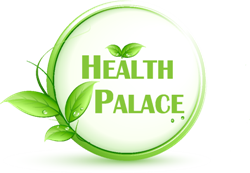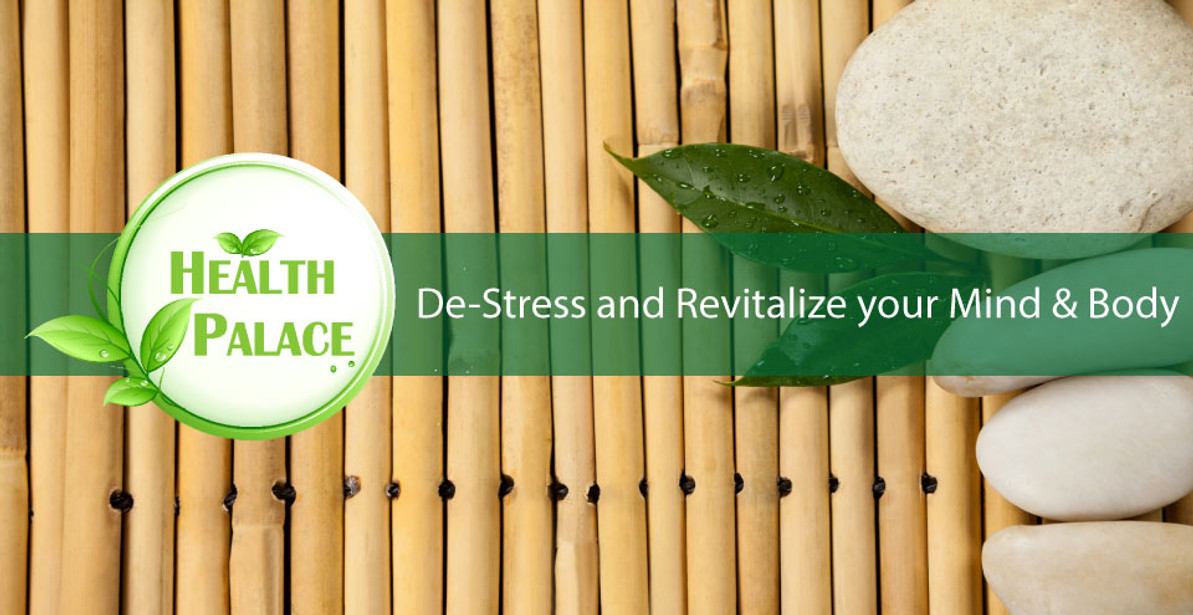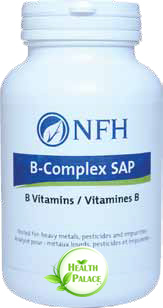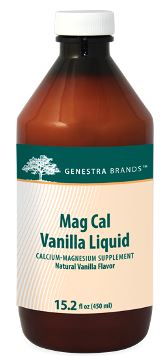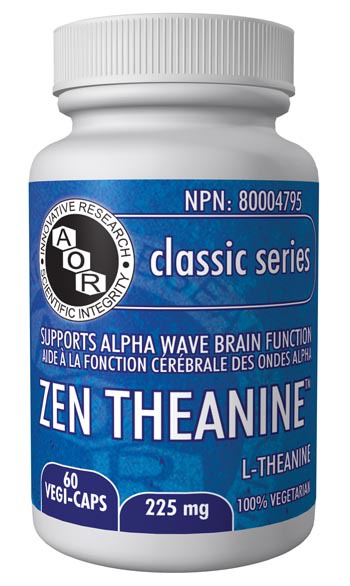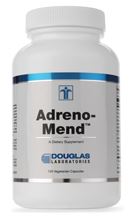How to Relieve Stress and Anxiety? | Natural Remedies for Anxiety and Depression
Key Steps to De-stress and Improve Your Energy and Focus

The human body is usually able to cope with moderate acute forms of physical and psychological stress; while, chronic stress impairs the body's coping mechanism which leads to the appearance of symptoms and diseases including digestive disturbances, heart and circulation disorders, cognitive decline, psychological and mood disorders, metabolic syndrome, weight gain, autoimmune diseases, and even advanced cellular damage. A better understanding of how the body's chemistry changes under chronic stress enable us to take steps toward reversing the changes and improving our overall health.
To treat symptoms of chronic stress, usually taking conventional medicines alone will not be sufficient and in some cases the adverse reactions make the situation even worse than it was, creating another level of stress, mood, and physical disorders. These types of drugs are mainly designed to mask the symptoms of stress and often do not address the hormonal and chemical changes such as adrenal-related hormones.
The body regulates stress via a complex hormone messaging from the pituitary gland in the brain to the rest of the organs like the adrenal. Then in response, the adrenal produces hormones like cortisol and catecholamines (adrenalin & nor-adrenaline) affecting the rest of the body like the heart, and muscles. Chronic stress causes long-time derangement of these hormones and the way our bodies react.
As a simple example, chronic stress causes higher than usual production of adrenaline which stimulates the heart muscle, affecting its function and resulting in abnormal or irregular heartbeats. This scenario could be replicated by affecting the digestive system, Immune system, respiratory system, nervous system, bladder muscles, sexual system, etc.
Another hormone that is often heard in relation to stress is called cortisol. What does Cortisol do?
A healthy level of cortisol is necessary for the maintenance of optimal health; yet, in both low and high levels, it could be very damaging. Cortisol receptors are found on cells all over the body; therefore, the effects of changes in cortisol levels could impact all the organs and tissues.
Cortisol plays an important role in our metabolism by regulating blood sugar levels via gluconeogenesis in the liver. It also regulates the metabolism of fats, carbohydrates, and proteins. It participates in Catabolism meaning that it helps to break down big molecules. So; imbalanced cortisol levels could change the body's composition and shape.
Cortisol balances the immune system and inflammation. High cortisol level suppresses the immune system exposing the body to several infections; while, low cortisol levels cause autoimmune diseases.
Cortisol is responsible for responding to stress. For example, Cortisol level goes up in response to acute stressors which is the so-called "Fight or flight response".
Considering everyone will respond to a stressor differently, only knowing how the body responds to the stressors will help to better identify and prevent the damaging effects of the stress. Generally, our body is responding to the stressors in three levels;
a) Immediate reaction which is known as " fight or flight " state.
b) Resistance state, in which the body is trying to adapt to the stress. In this state the cortisol production increases. Long-term stress will keep the body in this state causing prolonged metabolic change like insulin resistance.
c) Exhaustion state, is when the stress weakened and defeated the body's coping mechanism. In this stage, the body is no longer responsive to the high levels of the stress hormones, or due to some diseases body is unable to sufficiently respond to the stress. In other words, chronic stress results in impaired stress response. Therefore, the body is unable to perform normally and symptoms like constant fatigue, not being able to get up in the morning, mental fog, depression, anxiety, allergies, sugar craving, etc are observed.
Chronic exposure of brain cells to stress hormones will alter their usual functions. This has been more evident in those regions of the brain which control mood and memory. For instance, it has been found that the brain cells become less and less responsive to serotonin.
Constant long-term exposure to even a little higher than normal levels of cortisol is enough to create disease or symptoms. Modern society is full of stressors changing the body's physiology and keeping the stress hormones elevated all day long. Thus, finding effective alternative ways of keeping the stress under control has become even more important.
Lifestyle changes, dietary supplements, and natural herbs work hand in hand to provide relief from mild to moderate symptoms of an impaired stress response.

Stimulants like caffeinated drinks and alcohol alter the normal pattern of cortisol. This provokes stress and disrupts melatonin production which eventually will interrupt the healthy sleep cycle. Melatonin is naturally produced by the pineal gland in the brain. More melatonin is biologically produced at night acting against the cortisol. Shift work and exposure to stressors at night, when the cortisol level should be low and melatonin high, will alter this balance in the opposite way contributing to sleep and mood disorders. Avoiding physical and emotional stressors and Implementing techniques of relaxation, meditation, aromatherapy, and massage therapy have been shown to improve the stress response. Reduced melatonin production can be addressed by supplementing melatonin until the body regains its balance.
According to some studies imbalance of female and male hormones affects the brain's response to cortisol. For example, Progesterone has some calming effects on the brain, while during menopause, when the female hormone production is reduced, more women with mood disorders and anxiety are diagnosed. This could be prevented by natural hormone replacements. Let's not forget that usage of steroid hormones and performance-enhancing drugs also contribute to hormonal imbalance which alters the brain's response to cortisol leading to a wide range of mood disorders.
It is very well studied that providing proper nutritional support for the adrenal and brain helps the body to perform much better under stressful periods. Science shows High levels of steroids and cortisol deplete the body from Folic acid (folate) and vitamin B12 (methylcobalamin). On the other hand, B vitamins are also necessary for optimum adrenal function. This is highlighting the importance of supplementation with B complex to restore healthy stress response.
Vitamin C is known for its antioxidant and immune-supporting effects. Vitamin C is found in very high concentrations in adrenal tissue, and it is shown to be very important in adrenal function. Those who supplemented with vitamin C after exposure to extreme stress conditions showed lower levels of inflammation, cortisol, and adrenalin in their blood versus the control group.
Minerals like Calcium and Magnesium participate in the production of adrenal hormones. Also; other trace minerals such as Chromium, Manganese, Selenium, and Zinc are found necessary for adrenal function.
Brain wave activity measures have shown amino acid L-Theanine is able to significantly calm the brain and promote relaxation; In addition, it helps to improve focus and attention during difficult tasks.
Cell membrane structure contains a phospholipid called Phosphatidylserine (PS). Taking PS supplement is found to weaken the effects of high cortisol levels on the brain; plus, it plays a role in improving cellular communication.
When adrenal reaches the point that is no longer able to produce a sufficient amount of cortisol, the Licorice root extract will help. Licorice prevents the degradation of the hydrocortisone by the liver and increases the level of cortisol in the blood. While Licorice is very helpful when the cortisol level is low, it may not be suitable for everyone under daily stress and should not be taken for a long period of time without monitoring as it may contribute to high blood pressure and mineral imbalance.
Herbs with calming effects such as Valerian, Passionflower, hops, and lemon balm are shown to be very effective in controlling stress and reducing its negative symptoms. For example, Lemon Balm is found to be effectively lower both anxiety symptoms and sleep disorders.
A group of herbs is known for their adaptogenic properties. These herbs are able to adjust the body's response to stress. They demonstrate their unique harmonizing ability through different physiological pathways. Among them, Rhodiola Rosea, Eleuthero, Panax ginseng, Ashwagandha (Withania), and cordyceps are very well studied and known in natural medicine.

Rhodiola is found to be effective in the treatment of fatigue associated with chronic stress due to its ability to lower both catecholamines and cortisol responses. Phyto-nutrients found in Panax Ginseng and other Ginseng family have been studied for their multiple health benefits including anti-fatigue and anti-depressive properties. Ashwagandha is shown to reduce cortisol levels and inflammatory markers while improving the DHEA levels. Bacopa in ayurvedic medicine is used as a tonic for the nervous system. In clinical studies, participants taking Bacopa demonstrated remarkable improvement in cognitive function and reduction in symptoms of anxiety. A human trial supplementing with Cordyceps during exercise showed that it increased catecholamines levels and endurance.
Of course, when it comes to mood and memory, the benefits of omega 3 fatty acids can't be neglected. Omega 3 fatty acids including EFA and DHA balance the production of Omega 6. This balance is very important in regulating the response of receptors for adrenal hormones. A number of different researches suggest that those with mood disorders, depression, anxiety, and attention deficit disorders are greatly benefiting from a protocol including omega 3 fatty acids.
A compelling number of studies and clinical trials related to stress and anxiety management suggest that the majority of unwanted stress-related diseases and symptoms are preventable by knowing how individuals respond to the stress and identifying its signs and symptoms. Avoiding stressors and providing good nutrition seems to be the most effective and important step toward supporting the mind and body against daily emotional and physical stress.
Articles and products featured by Health Palace are collected from a variety of sources and are provided as a service by Health Palace. These newsletters, while of potential interest to readers, do not necessarily represent the opinions nor constitute the advice of Health Palace. Presented materials are only for information purposes and do not intend to treat, cure, or prevent any disease.
References:
1.Anacker C et al. Antidepressants increase human hippocampal neurogenesis by activating the glucocorticoid receptor. Mol Psychiatry. 2011 Jul;16(7):738-50. doi: 10.1038/mp.2011.26. Epub 2011 Apr 12. 2.Anderson DC. Assessment and nutraceutical management of stress-induced adrenal dysfunction. Integrative Medicine. 2008;7(5):18-25.
3.Gouin JP et al. Chronic stress, daily stressors, and circulating inflammatory markers. Health Psychol. 2011 Sep 19. [Epub ahead of print]
4.Innes KE et al. Chronic stress and insulin resistance-related indices of cardiovascular disease risk, part I: neurophysiological responses and pathological sequelae. Altern Ther Health Med. 2007 Jul-Aug;13(4):46-52.
5.Kyrou I et al. Chronic stress, visceral obesity and gonadal dysfunction. Hormones (Athens). 2008 Oct-Dec;7(4):287-93.
6.Lovallo WR., Cortisol responses to mental stress, exercise, and meals following caffeine intake in men and women. Pharmacol. Biochem. Behav. 2006 83 (3): 441–447.
7.Field, T., Cortisol decreases and serotonin and dopamine increase following massage therapy. The International journal of neuroscience 2005, 115 (10): 1397–1413.
8.Patacchioli FR et al. Menopause, mild psychological stress and salivary cortisol: influence of long-term hormone replacement therapy (HRT). Maturitas. 2006 Sep 20;55(2):150-5. Epub 2006 Mar 6.
9.Bruls E.,Melatonin. I. Physiology of its secretion]. Rev Med Liege. 2000 Aug;55(8):785-92.
10.James FO et al. Circadian rhythms of melatonin, cortisol, and clock gene expression during simulated night shift work. Sleep. 2007 Nov;30(11):1427-36.
11.Wirth, M., Shiftwork duration and the awakening cortisol response among police officers., Chronobiol Int. 2011 ;28(5):446-57.
12.Bornstein SR. Vitamin C is an important cofactor for both adrenal cortex and adrenal medulla. Endocr Res. 2004 Nov;30(4):871-875.
13.Peters EM, Vitamin C supplementation attenuates the increases in circulating cortisol, adrenaline and anti-inflammatory polypeptides following ultramarathon running. Int J Sports Med. 2001 (7):537-543.
14.Brody S., A randomized controlled trial of high dose ascorbic acid for reduction of blood pressure, cortisol, and subjective responses to psychological stress. Psychopharmacology (Berl). 2002;159:319-324.
15.Carroll D. The effects of an oral multivitamin combination with calcium, magnesium, and zinc on psychological well-being in healthy young male volunteers: a double-blind, placebo-controlled trial. Psychopharmacology (Berl). 2000;150:220-225.
16.Cases J et al. Pilot trial of Melissa officinalis L. leaf extract in the treatment of volunteers suffering from mild-to-moderate anxiety disorders and sleep disturbances. Med J Nutrition Metab. 2011 Dec;4(3):211-218. Epub 2010 Dec 17.
17.Cho HS, Kim S, Lee SY, Park JA, Kim SJ, Chun HS. Protective effect of the green tea component, L-theanine on environmental toxins-induced neuronal cell death. Neurotoxicology. 2008 Jul;29(4):656-62.
18.Dimpfel W, Kler A, Kriesl E, Lehnfeld R, Keplinger-Dimpfel IK. Source density analysis of the human EEG after ingestion of a drink containing decaffeinated extract of green tea enriched with L-theanine and theogallin. Nutr Neurosci. 2007a Jun-Aug;10(3-4):169-80.
19.Gomez-Ramirez M, Kelly SP, Montesi JL, Foxe JJ. The effects of L-theanine on alpha-band oscillatory brain activity during a visuo-spatial attention task. Brain Topogr. 2009 Jun;22(1):44-51.
20.Benton D., The influence of phosphatidylserine supplementation on mood and heart rate when faced with an acute stressor. Nutr Neurosci. 2001;4(3):169-178.
21.Methlie P et al. Grapefruit juice and licorice increase cortisol availability in patients with Addison's disease. Eur J Endocrinol. 2011 Nov;165(5):761-9. Epub 2011 Sep 6.
22.Schambelan M., Licorice ingestion and blood pressure regulating hormones., Steroids.1994;59(2):127-130.
23.Dimpfel W., Effects of lozenge containing lavender oil, extracts from hops, lemon balm and oat on electrical brain activity of volunteers. Eur J Med Res. 2004 Sep 29;9(9):423-31.
24.Panossian A, Evidence-based efficacy of adaptogens in fatigue, and molecular mechanisms related to their stress-protective activity. Curr Clin Pharmacol. 2009 Sep;4(3):198-219.
25.Auddy B et al. A Standardized Withania Somnifera Extract Significantly Reduces Stress-Related Parameters in Chronically Stressed Humans: A Double-Blind, Randomized, Placebo-controlled Study. 2008; 11(1):50-56.
26.De Bock K, Acute Rhodiola rosea intake can improve endurance exercise performance. Int J Sport Nutr Exerc Metab. 2004;14(3):298-307.
27.Olsson EM et al. A randomised, double-blind, placebo-controlled, parallel-group study of the standardised extract shr-5 of the roots of Rhodiola rosea in the treatment of subjects with stress-related fatigue. Planta Med. 2009 Feb;75(2):105-12.
28.Gaffney BT.,The effects of Eleutherococcus senticosus and Panax ginseng on steroidal hormone indices of stress and lymphocyte subset numbers in endurance athletes. Life Sci.2001;70:431-442.
29.Chen JK., Chinese Medical Herbology and Pharmacology, CA: Art of Medicine Press; 2004.
30.Kiho T, Ookubo K, Usui S, et al. Structural features and hypoglycemic activity of a polysaccharide (CS-F10) from the cultured mycelium of Cordyceps sinensis. Biol Pharm Bull. 1999;22(9):966-970.
31.Koh JH, Kim KM, Kim JM, et al. Antifatigue and antistress effect of the hot-water fraction from mycelia of Cordyceps sinensis. Biol Pharm Bull. 2003;26(5):691-694.
32.Nagata A, Tajima T, Uchida M. Supplemental anti-fatigue effects of Cordyceps sinensis (tochu-kaso) extract powder during three stepwise exercise of human. Jpn J Phys Fitness Sports Med. 2005;55 Suppl.:S145-52.
33.Cooley K, Naturopathic Care for
Anxiety: A Randomized Controlled Trial ISRCTN78958974. PLoS ONE 2009; 4(8):
e6628.
34.Bhattacharya SK, Ghosal S. Anxiolytic activity of a standardized extract
of Bacopa monniera: an experimental study. Phytomedicine. 1998;5(2):77–82.
35.Bradbury J., An adaptogenic role for omega-3 fatty acids in stress; a
randomised placebo controlled double blind intervention study (pilot). Nutr J.
2004 11: 28.
36.Logan, A. Omega-3 fatty acids and major depression: A primer for the
mental health professional. Lipids Health Dis. 2004; 3: 25.
37.Rocha Araujo DM., What is the effectiveness of the use of polyunsaturated fatty acid omega-3 in the treatment of depression? Expert Rev Neurother. 2010; 10(7):1117-1129.
38.Silvers KM., Randomised double-blind placebo-controlled trial of fish oil in the treatment of depression. Prostaglandins Leukot Essent Fatty Acids. 2005;72:211-218.
Designs for Health CatecholaCalm 90 Veg Capsules
|
Bioclinic Naturals Melatonin 10 mg - 180 Sublingual Tablets |
NFH B Complex SAP 60 Veg Capsules | |||||||
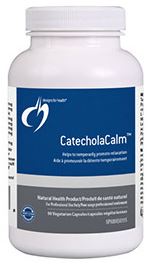 CatecholaCalm™ is designed to support healthy catecholamine levels with adaptogenic herbs and nutrients that may help mood and promote calmness and relaxation... |
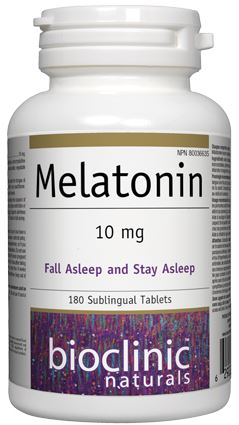 Melatonin has shown clinical benefit for inducing sleep or adjusting sleep cycles reducing sleep onset latency and improving perceived quality of sleep....... Read more |
|
|||||||
|
|
|
|
|
|
|||||
|
|
|
|
|||||||
| Genestra Mag Cal Vanilla Liquid 450 Ml | Aor Zen Theanine 120 Veg Capsules |
|
|
||||||
|
...Read more |
|
|
|||||||
|
|
|
Recent Posts
-
Maintain A Healthy Heart Rhythm With Integrative Medicine
Maintain A Healthy Heart Rhythm With Integrative Medicine;Usually, abnormal heart rate or arrhythmi …4th Feb 2021 -
How To Protect Against COVID-19
Coronaviruses are a large group of viruses that cause many common human and animal infections. In hu …30th Jun 2020 -
How to Prevent Gallstones from Forming? | Natural Supplements for Gallstones
How To Prevent Gallstone Formation?Gallstones are hard deposits made of cholesterol or bilirubin f …4th Mar 2020
